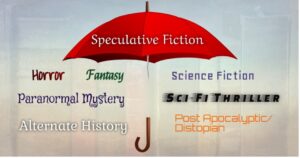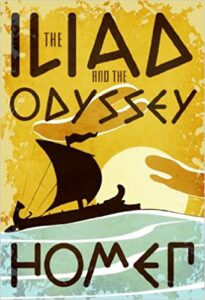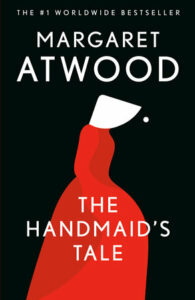
When I first started writing with the intent to publish, I called myself a speculative fiction author because my story ideas didn’t all fit into one neat little genre box. The problem with that, I soon discovered, was that very few people seemed to understand what speculative fiction is.
As a result, I now write under two pen names, each focusing on separate marketing genres underneath the ‘speculative fiction’ umbrella.
So let’s clarify, then, what speculative fiction is, and why it seems so difficult for readers—and even authors and editors—to understand what the term means.
What is Speculative Fiction?
Speculative fiction is a term that encompasses any fiction that delves into the realm of the unknown. It can use realistic, known possibilities, but will then combine them with elements of the unknown, or known impossibilities. In other words, as its name suggest, it’s the realm of speculation: of “what ifs,” of possibilities, of the imagination.
It’s because the term ‘speculative fiction’ encompasses any genre that uses the unknown, impossibilities, and the imagination.
This is also where the difficulty in understanding the genre likely lies.

Speculative Fiction Background
Speculative Fiction is a term that was first used in the 1940s by author Robert A. Heinlein. Heinlein used the term for science fiction. Over the years, however, the term has come to include many other genres and subgenres as well.
Though the term ‘speculative fiction’ was coined in the 1940s, the genre itself can be traced back to ancient Greece and Rome, whose mythologies often explained the unexplainable by creating gods and giving them supernatural powers. It can be seen in all those tragedies and epic poems where the hero has to stand against gods, fate, and monsters, such as Homer’s two epic poems, The Iliad and The Odyssey.

Speculative Fiction Definition
While the majority of people may use ‘speculative fiction’ as a sweeping, all-encompassing term for stories that involve world-building, lore, and so on, there have notably been some authors who argue that the definition should be a little more restrictive.
For example Margaret Atwood uses the term to refer to fiction that describes “things that could happen but hadn’t completely happened when the authors wrote the book.” Atwood’s own, well-known story The Handmaid’s Tale fits into this category.

The Importance of Speculative Fiction
In the past, many people used speculative fiction to try and explain what they didn’t then have the knowledge to explain.
An example of this is the TV series, Star Trek. Communicators—the flip kind in the original Star Trek and the badges in The Next Generation—existed long before cell phones and wireless Bluetooth devices. Lieutenant Uhura wore a wireless headset long before they existed. And the characters spoke to their ships’ computers in the same way that we now talk to Siri, Alexa, or Google Home.

The same article I quoted above gives another reason why speculative fiction is so important: it “can also be an ideal way to explore problems in the modern world that are made safe by being dressed in fantastical trappings . . . By creating a made-up world, writers can address what may be controversial themes in a way that is less personal or less threatening to readers.”
Speculative Fiction Examples by Subgenre
Speculative Fiction in Urban Fantasy
Cassandra Claire’s The Mortal Instruments series is set in modern-day New York City. The story starts out in the ‘normal world’, with the kinds of places, people, objects, etc. that one would expect to see if they visited “The Big Apple”.
Very soon, however, we discover there is this whole other world—hidden behind ‘glamours’ that keep it hidden from ‘mundanes,’—that exists right alongside our own. It is this whole, imaginary world that leaves us with the question, “What if there was an invisible world that existed with ours that we just can’t see?”

Speculative Science Fiction
In Andy Weir’s The Martian, the author takes a look at the possibility of sending a crew to Mars to check its viability as a future colony. This is a topic that is presently being explored in the real world. Current concerns such as pollution, overpopulation, and global warming lead to many wondering if the Earth will no longer being able to sustain us in the future.
It looks at both the possibilities and dangers of sending a crew to Mars, and asks a number of ‘what if’s.’ What if the crew has to abandon the site on Mars due to a sand storm? What if a crew member is stranded after being left behind for dead? How can a human survive the harsh conditions on Mars when everything seems to go wrong?

Speculative Fiction in Post-apocalyptic/Dystopian
The Hunger Games by Suzanne Collins is set in the post-apocalyptic world of Panem, which exists on what used to be North America after a series of disasters.
We don’t learn what those disasters were, exactly, but we are left wondering what life would be like if a disaster (or disasters) destroyed the world as we know it—including the political, economic, and social systems.

Tips for Speculative Writing
- Ask yourself ‘what if’ questions. This is good advice for any fiction story in any genre, but it is especially important for speculative fiction. As the genre’s title suggests, it requires us to speculate, and ‘what if’ is a central question to ask in order to do that.
- Explore real-world problems. Watch the evening news. Check out online news sites. Speculate on what the future might look like if certain issues are not satisfactorily resolved.
- Look at past events. This is especially relevant if you write alternate-history or time-travel stories, but past events can inspire stories set in the present or future as well.
- Do your research. Even if your story is exploring something that is considered an impossibility, researching the topic can give you enough knowledge to make it plausible.
- Read extensively. Some classics of the speculative fiction genre are 1984 by George Orwell, War of the Worlds by H.G. Wells, and Gulliver’s Travels by Jonathan Swift. Blade Runner by Ridley Scott, The Matrix by the Wachowskis, and the Hunger Games series by Suzanne Collins are some well-known contemporary examples.
Conclusion
The term ‘speculative fiction’ can be applied to many different genres and sub-genres and includes some of the best-known stories out there. If you like the idea of writing imaginative stories that answer ‘what if” questions and make the impossible possible, then speculative fiction may be for you.

